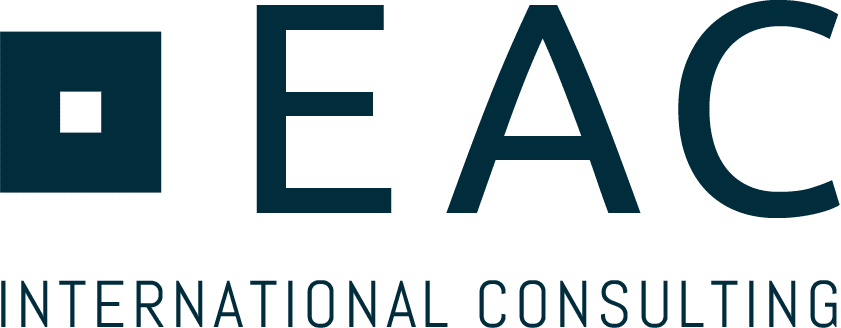
GO EAST - EASTERN EUROPE OFFERS COST-EFFECTIVE STRUCTURES AND PROXIMITY TO KEY MARKETS
"The Central and Eastern European region offers attractive opportunities for the establishment of new production sites and shared service centers due to its cost-effective structures and proximity to key markets."
Europe – Middle East - Africa
Central Eastern Europe
Central Eastern Europe (CEE) offers highly attractive opportunities for foreign companies due to its low-cost structure as well as close proximity to key markets. In particular, automotive companies follow the trend of ‘going east’. The region is characterized by its industrial tradition, skilled workers as well as its high engineering potential. EAC supports leading European automotive companies mainly from manufacturing industries regarding its strategic positioning and location search in the CEE region while benefiting from an excellent network in the region in different industries, associations and governmental organizations on a regional and local level.
Central Eastern Europe (CEE) offers highly attractive opportunities for foreign companies due to its low-cost structure as well as close proximity to key markets. In particular, automotive companies follow the trend of ‘going east’. The region is characterized by its industrial tradition, skilled workers as well as its high engineering potential. EAC supports leading European automotive companies mainly from manufacturing industries regarding its strategic positioning and location search in the CEE region while benefiting from an excellent network in the region in different industries, associations and governmental organizations on a regional and local level.
The EAC has been active in Central and Eastern Europe since the mid-1990s. Our consulting services in this region are primarily focused on operational excellence, strategy and M&A with a focus on the automotive, engineering, healthcare, chemical and consumer goods industries. In doing so, we can look back on many years of expertise in the area of strategic positioning as well as relocation and expansion processes in CEE. Our team has an excellent network within the industry as well as with associations and governmental institutions at regional and local level.
"Since 2019, two new partners support tailor-made solutions for our EAC clients in Austria and Switzerland."
D-A-CH Region
EAC not only advises clients on issues in growth markets around the globe, but also delivers successful and feasible solutions in its home market Europe, the D-A-CH region. From our Headqurter in Munich we advise multinational corporations as well as medium-sized businesses on a variety of strategic and operational issues.
EAC not only advises clients on issues in growth markets around the globe, but also delivers successful and feasible solutions in its home market Europe, the D-A-CH region. From our Headqurter in Munich we advise multinational corporations as well as medium-sized businesses on a variety of strategic and operational issues.
„EAC supports leading European automotive companies from the manufacturing industry in their strategic positioning and location search in the Eastern European region. We have an excellent local network to various industries, associations and governmental organizations at regional and local level.“
Anna Ahlborn, Partner EAC Munich and expert for Russia & Eastern Europe
Middle East - Africa
Middle East
The Middle East comprises - depending on the exact definition - around 18 countries and is home to over 400 million people. Although the region has often been the subject of negative press headlines in recent decades, its great economic, political and social diversity makes it difficult to generalize and therefore difficult for outsiders to understand. The region is home to five of the ten largest oil-producing countries and thus serves about one third of the world's oil demand.
Many countries in the Middle East have embarked on far-reaching reforms in recent years to diversify their economies and transform the region into a global innovation hub in sectors such as logistics, industrial goods, tourism, financial services and healthcare. Saudi Arabia's Vision 2030 and this year's Expo 2020 in the United Arab Emirates (UAE) underscore the region's ambitions to become an economic heavyweight at the interface between Africa, Asia and Europe. Despite ongoing political tensions and religious conflicts, we can help companies succeed in the Middle East with the help of our in-depth expertise and regional network. EAC is happy to advise you on a variety of strategic, operational and M&A issues in this promising economic region.
The Middle East comprises - depending on the exact definition - around 18 countries and is home to over 400 million people. Although the region has often been the subject of negative press headlines in recent decades, its great economic, political and social diversity makes it difficult to generalize and therefore difficult for outsiders to understand. The region is home to five of the ten largest oil-producing countries and thus serves about one third of the world's oil demand.
Many countries in the Middle East have embarked on far-reaching reforms in recent years to diversify their economies and transform the region into a global innovation hub in sectors such as logistics, industrial goods, tourism, financial services and healthcare. Saudi Arabia's Vision 2030 and this year's Expo 2020 in the United Arab Emirates (UAE) underscore the region's ambitions to become an economic heavyweight at the interface between Africa, Asia and Europe. Despite ongoing political tensions and religious conflicts, we can help companies succeed in the Middle East with the help of our in-depth expertise and regional network. EAC is happy to advise you on a variety of strategic, operational and M&A issues in this promising economic region.
Africa
Africa, with its approximately 1.2 billion people in 54 different countries, has managed to stabilize its growth at 3.4% in 2019 and will head for even higher growth in the coming years. Recent increases in foreign direct investment have also rekindled economic interest in the continent. In contrast to the external perception of Africa as a single bloc of states, it is essential for entrepreneurs to be able to correctly assess the individual potential of the various countries and regions on the continent. Although Africa still has significant development potential in some areas, there are enormous regional differences.
Nigeria, South Africa and Egypt, as Africa's largest economies, not only have enormous potential as production locations, but are also suitable for companies looking for attractive sales markets. In addition, Morocco, for example, has also positioned itself in recent years as an interesting outsourcing location for European and Asian companies. In addition to established locations, Africa also has some of the world's fastest growing economies such as Ethiopia, the ivory arts and Rwanda - all three with annual growth rates of between 7 and 9%.
The economic performance of some African states is still dominated by agriculture, with products such as coffee, rubber, cotton and cocoa. Many of the countries are also rich in natural resources, such as oil, copper, gold and diamonds. The export of the often unprocessed raw materials accounts for a considerable part of the continent's economic performance. In recent years, a continuous shift from private consumption to investment and export has been observed in the composition of economic growth in this context. In addition, strong inflation has declined noticeably in many parts of the continent as macroeconomic stability and political mechanisms have improved significantly. In addition, 40 of the 54 African countries (as of September 2019) have signed memoranda of understanding with the Chinese government as part of the Belt & Road Initiative (BRI) - this not only results in a stronger Chinese commitment to Africa, but also in a growing interest on the part of Western governments to invest more in Africa in order to profitably exploit future potential.
EAC advises its clients on a wide range of topics. From the strategic evaluation of individual countries as production sites or sales markets for their products and services, to the identification of potential M&A targets, to the optimization of supply chains and other operational issues - our goal is to help our clients' business activities in Africa achieve the greatest possible success through our decades of expertise and an extensive network of experts.
Africa, with its approximately 1.2 billion people in 54 different countries, has managed to stabilize its growth at 3.4% in 2019 and will head for even higher growth in the coming years. Recent increases in foreign direct investment have also rekindled economic interest in the continent. In contrast to the external perception of Africa as a single bloc of states, it is essential for entrepreneurs to be able to correctly assess the individual potential of the various countries and regions on the continent. Although Africa still has significant development potential in some areas, there are enormous regional differences.
Nigeria, South Africa and Egypt, as Africa's largest economies, not only have enormous potential as production locations, but are also suitable for companies looking for attractive sales markets. In addition, Morocco, for example, has also positioned itself in recent years as an interesting outsourcing location for European and Asian companies. In addition to established locations, Africa also has some of the world's fastest growing economies such as Ethiopia, the ivory arts and Rwanda - all three with annual growth rates of between 7 and 9%.
The economic performance of some African states is still dominated by agriculture, with products such as coffee, rubber, cotton and cocoa. Many of the countries are also rich in natural resources, such as oil, copper, gold and diamonds. The export of the often unprocessed raw materials accounts for a considerable part of the continent's economic performance. In recent years, a continuous shift from private consumption to investment and export has been observed in the composition of economic growth in this context. In addition, strong inflation has declined noticeably in many parts of the continent as macroeconomic stability and political mechanisms have improved significantly. In addition, 40 of the 54 African countries (as of September 2019) have signed memoranda of understanding with the Chinese government as part of the Belt & Road Initiative (BRI) - this not only results in a stronger Chinese commitment to Africa, but also in a growing interest on the part of Western governments to invest more in Africa in order to profitably exploit future potential.
EAC advises its clients on a wide range of topics. From the strategic evaluation of individual countries as production sites or sales markets for their products and services, to the identification of potential M&A targets, to the optimization of supply chains and other operational issues - our goal is to help our clients' business activities in Africa achieve the greatest possible success through our decades of expertise and an extensive network of experts.



